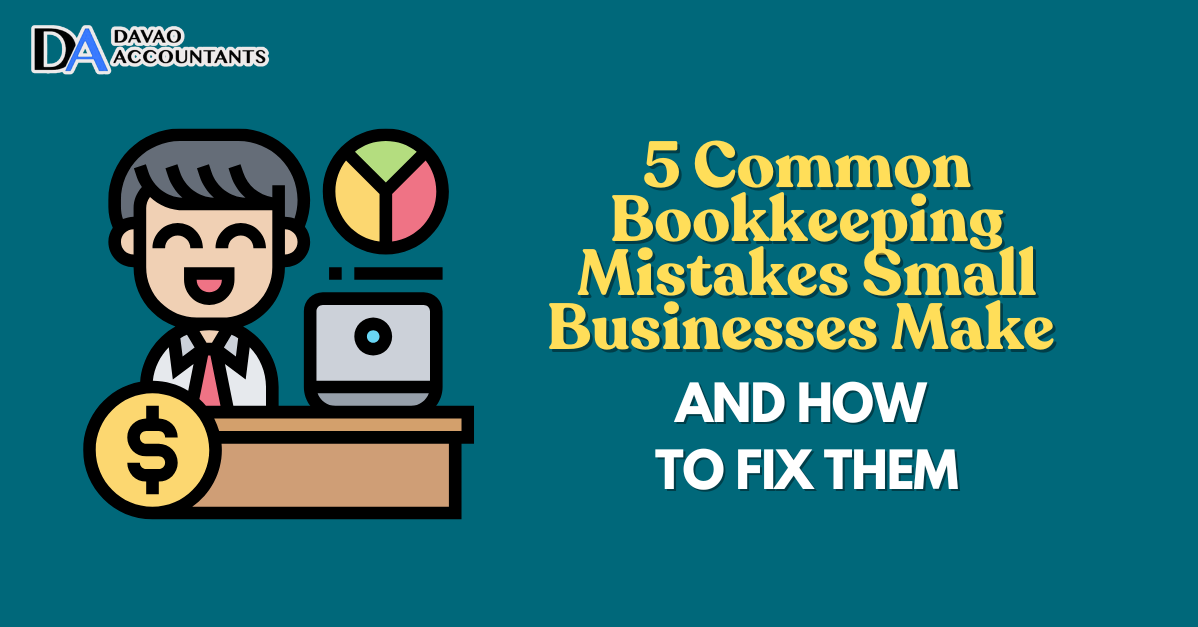Introduction
Running a small business or working as a freelancer in the Philippines often means juggling many obligations — and one of the most critical is staying on top of your tax deadlines. The Bureau of Internal Revenue (BIR) sets specific due dates for various tax filings and payments, whether on a monthly or quarterly basis. Missing these deadlines can trigger penalties, surcharges, or even interest on unpaid tax.
In this article, Davao Accountants will provide you with a practical and up‑to‑date schedule of the key monthly and quarterly tax deadlines that apply to freelancers, startups, and small businesses, along with tips to stay organised and compliant.
Why tracking deadlines matters
Failing to file or pay the required tax returns on time may lead to:
- Late‑filing penalties — an additional fee is added for each late return.
- Interest on unpaid tax — the longer you wait, the more you owe.
- Audit risk — repeated missed deadlines may raise red flags.
- Cash‑flow strain — last‑minute payments may disrupt your business’s financials.
For micro‑businesses, startups, and freelancers, these deadlines may seem numerous — but once mapped out, they become manageable. Building a simple calendar or setting reminders will save time and worry. According to recent tax calendar compilations, the monthly deadlines include VAT, withholding tax, and other taxes; quarterly deadlines include returns such as Form 2551Q and Form 1701Q.
Key Monthly Tax Returns and Payments
Here are some of the most common monthly tax obligations for small businesses and freelancers in the Philippines:
1. Monthly VAT Declaration – Form 2550M
If your business is VAT‑registered, you must file the monthly VAT declaration using BIR Form 2550M. This must be filed and paid not later than the 20th day following the end of each month.
For example, the tax for January must be filed by 20 February.
Tip: Set a reminder early in the month so you’re not scrambling near the date.
2. Monthly Withholding Taxes – Forms 1601‑C (Compensation), 0619‑E/F (Creditable/Final Withholding)
If you withhold taxes on compensation (for your employees) or on other payments, you need to remit monthly withholding returns:
- Form 1601‑C (Monthly Remittance Return of Income Taxes Withheld on Compensation) must be filed by the 10th day of the following month (for Jan‑Nov) and by the 15th day for December.
- Forms 0619‑E/F for other withholdings also have similar monthly due dates (often the 10th day following the month).
Maintaining a monthly schedule helps avoid late remittance of withheld taxes, which are often sensitive.
3. Monthly e‑Sales Reports (For CRM/POS Systems)
For businesses using computerized receipt machines or POS, submission of the e‑Sales report may be mandated within a specified monthly deadline (for example, 20th or 10th day of next month).
Check with your specific registration/RDO if this applies to you.
4. Monthly Percentage Tax — Other Taxes (if applicable)
If your business is not VAT-registered but subject to a percentage tax, some monthly returns are applicable. For example, for some categories, the monthly return would still need a timely submission. Always check with your accountant for your tax category.
Key Quarterly Tax Returns and Payments
In addition to monthly obligations, many small businesses and freelancers have quarterly obligations. Here are the major ones:
1. Quarterly Income Tax Return for Individuals, Estates & Trusts – Form 1701Q
If you are self‑employed or a freelancer, you may be required to file the quarterly ITR using Form 1701Q. The due dates are:
- For the 1st quarter (Jan–Mar): on or before 15 May.
- For 2nd quarter (Apr–Jun): on or before 15 August.
- For 3rd quarter (Jul–Sep): on or before 15 November.
Note: Some deadlines may shift if falling on a holiday/weekend — verify each year.
2. Quarterly VAT Return – Form 2550Q
A VAT‑registered business must file the quarterly VAT return using Form 2550Q. The general rule is: file on or before the 25th day following the end of each quarter.
For example, for the Jan-Mar quarter, file by 25 April.
3. Quarterly Percentage Tax Return – Form 2551Q
For non‑VAT businesses subject to percentage tax, Form 2551Q is used. Also due on or before the 25th day following the close of each quarter.
Example: Apr–Jun quarter — file by 25 July.
4. Other Quarterly Remittances
There are other quarterly filings, such as the summary alphalist of withholding taxes (SAWT), quarterly remittance returns for certain withholding forms, etc.
Tip: Group these into your quarterly checklist early in the quarter so you’re ready by the deadline.
Building Your Tax Deadline Calendar
Here’s how you can structure a calendar for your tax obligations:
Step 1: Identify your business classification
- Are you VAT‑registered or non‑VAT (percentage tax)?
- Do you withhold taxes (employees, contractors, vendors)?
- Do you issue computerized receipts or use POS systems?
Step 2: Map the monthly deadlines
- Mark 20th day of each month for 2550M (if VAT)
- Mark 10th/15th day of each month for 1601‑C, 0619‑E/F
- Mark other monthly returns specific to you (e‑sales, other taxes)
Step 3: Map the quarterly deadlines
- 25th day after each quarter end for 2550Q/2551Q
- 15 May / 15 Aug / 15 Nov for 1701Q (for applicable taxpayers)
- Mark other quarterly returns like SAWT or 1702Q if you are a non‑individual taxpayer
Step 4: Set internal reminders ahead of deadlines
- Try to complete the return 5‑10 business days in advance so that any corrections can be made.
- Keep a buffer for payment – many filings require payment upon or before submission.
- Use digital tools (calendar, spreadsheet, accounting software) to flag upcoming obligations.
Step 5: Review and update annually
- At year‑end review your business volume, classification, and whether new obligations (e.g., crossing VAT threshold) apply.
- Amend your calendar accordingly for the next year.
Common Mistakes & How to Avoid Them
Here are frequent errors made by freelancers and small businesses — and how you can avoid them.
Mistake 1: Missing a monthly deadline due to oversight
How to avoid: Create recurring reminders; treat tax deadlines like payroll or rent payments. Use accounting software or calendar alerts.
Mistake 2: Filing on time but missing the payment
Some taxpayers file the form but neglect to pay the tax due by the deadline. Penalties still apply.
How to avoid: Make payment part of the “file and pay” checklist.
Mistake 3: Misclassification (VAT vs non‑VAT) and hitting the wrong deadline
If you mistakenly assume you’re on percentage tax but you should be VAT‑registered, you may have different filing requirements.
How to avoid: Review your sales and tax classification with a professional accountant annually.
Mistake 4: Relying on memory rather than a system
Tax obligations change; relying on vague memory can lead to missed deadlines.
How to avoid: Keep a written or digital log of deadlines; update it when new forms or rules are introduced.
Mistake 5: Not anticipating growth or changes
If your business grows and crosses certain thresholds (e.g., the VAT threshold), you may suddenly be subject to new obligations.
How to avoid: Monitor your revenue, client mix, and tax status; seek professional advice early.
Tips and Best Practices for Freelancers, Startups & Small Businesses
Here are additional tips to make managing your tax deadlines simpler:
- Consolidate tax tasks: Dedicate one day each month (e.g., the first Monday) to review upcoming filings, prepare supporting documents, pay taxes, and update your calendar.
- Maintain a filing folder: Keep digital copies of submitted forms, payment receipts, and confirmation emails. These will help if your business is audited.
- Leverage software or apps: Use accounting or tax‑reminder tools that link to BIR deadlines. Many services offer alerts for monthly and quarterly returns.
- Separate your tax budget: Allocate a portion of your revenue each month or quarter into a “tax fund” to avoid scrambling when payment is due.
- Work with a professional: If your business has multiple obligations (VAT, withholdings, percentage tax), having a bookkeeper or tax adviser (such as Davao Accountants) will save time and reduce errors.
- Stay informed of rule changes: The BIR regularly issues new revenue regulations and circulars that might change deadlines or requirements. For example, annual tax calendars and tax extension deadlines may be published.
- Review annually: At the end of the year (or start of next), review all deadlines, gather what you filed, analyse your tax performance, and adjust your next year’s calendar.
Example Checklist for Your Business
Below is an example checklist you could adopt for your calendar.
Monthly (each month):
- File & pay VAT declaration (2550M) if applicable — due 20th of the following month.
- File & pay monthly withholding taxes (1601‑C / 0619‑E/F) — due 10th/15th of following month.
- Submit e‑Sales / computerized receipts report (if applicable).
- Make tax payment.
Quarterly (every 3 months):
- File & pay quarterly VAT return (2550Q) — due 25th day after quarter end.
- File & pay quarterly Percentage Tax return (2551Q) if non‑VAT business — due 25th day after quarter end.
- File & pay quarterly Income Tax Return (1701Q) if individual self‑employed/freelancer — due 15 May / Aug / Nov as applicable.
- Submit other quarterly obligations (SAWT, summary lists, etc.).
- Review business classification and update the calendar.
Annual review:
- Assess whether your revenue crossed the VAT threshold.
- Update classification if needed.
- Plan for next year’s filing/payment system.
Conclusion
Keeping track of monthly and quarterly tax deadlines is a vital part of running a compliant and stress‑free business in the Philippines. By mapping out key dates, such as the 20th day of each month for VAT, the 25th day after each quarter for VAT/percentage tax returns, and the key quarterly income tax deadlines, you reduce the risk of penalties, avoid cash-flow surprises, and position your business for growth.
For freelancers, startups, and small enterprises, this doesn’t have to be overwhelming. With a simple calendar, recurring reminders, and best practices in place, you can manage your tax obligations effectively.
If you’d like help setting up your tax deadline calendar, verifying which returns apply to you, or organising your filings and payments, Davao Accountants is ready to support you. Reach out today and let us ensure your business stays on schedule and compliant.











